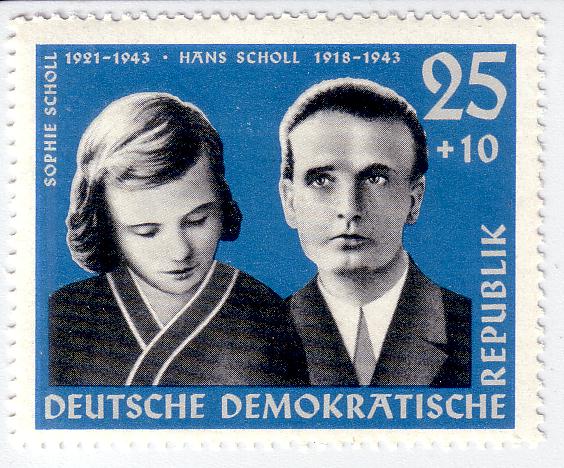Lately, young people standing up against oppressive regimes have faced unrelenting streams of ridicule, abuse, and worse: some have even lost their lives in mysterious circumstances that recall the tragic fates of those who battled racism in the U.S. south decades ago. Though it’s cold consolation to the bereaved and harassed, it at least remains the case today that activists who speak out can count on varying, but vocal levels of support, and they will find celebrities and politicians, whether cynical or well-meaning, to amplify (or co-opt) their message.
We can and should draw parallels between 20th-century European fascism and the 21st-century’s fascist turn. But the above situation could never have obtained in Nazi Germany of the 1930s and 40s. Anti-Nazi points of view were banned even for entertainment purposes. Circulating them would almost certainly result in execution. Ordinary Germans may have also vented their spleens at dissenters, but they did so with full assurance that those people would be crushed by the government, and that no one would stand up for them, not even to posture.
It was in this paralyzing climate of terror that the student members of The White Rose, a secretive, anonymous group of activists, began distributing leaflets denouncing Hitler and Nazism. “At a time when a sarcastic remark could constitute treason,” notes the TED-Ed lesson above, the strident language “was unprecedented.” Most of the leaflets were written by Hans Scholl, as the short, animated video—scripted by scholar Iseult Gillespie—informs us. Just a few years earlier, Scholl had been an enthusiastic member of the Hitler Youth, and his sister Sophie, who joined him in The White Rose, had been a member of the League of German Girls.

In 1936, when Hans witnessed a mass Nazi rally for the first time, he began to seriously question his life choices. Sophie had been entertaining her own doubts. Their parents, both increasingly concerned about the Nazi threat, were very supportive. The Scholl family had secretly listened to foreign broadcasts and learned “shocking truths” about what was happening in their country. While at the University of Munich, Hans “started reading anti-Nazi sermons,” writes Erin Blakemore at Smithsonian, “and attending classes with Kurt Huber, a psychology and philosophy professor whose lectures included veiled criticisms of the regime.”
Hans was drafted into the army as a medic, where he witnessed abuses against Jewish prisoners and heard about the concentration camps. When he returned to medical school at the University of Munich, he met several friends who shared his outrage. In 1939, The White Rose printed its first leaflets, spreading them all over Munich. “Adopt passive resistance,” they urged, inspiring Germans to sabotage the war effort. “Block the functioning of this atheistic war machine before it is too late. Before the last city is a heap of rubble. Before the last youth in our nation bleeds to death.”
Many more leaflets followed. (Sophie would not discover them and join the group until after their activities began.) “The White Rose mailed the pamphlets to random people they found in the phone book,” writes Blakemore. They “took them in suitcases to other cities, and left them in phone booths. They also painted graffiti on the walls of the University of Munich with slogans like ‘Freedom!’ and ‘Hitler the Mass Murderer!’” It was the first time public dissent against the Nazis had taken hold. “The society’s work quickly spread to other cities, with some of its literature even showing up in Austria.”
In 1943, Allied planes dropped tens of thousands of The White Rose’s leaflets over Nazi Germany. News of them “even reached concentrations camps and prisons,” the video notes. Soon afterward, the Scholls and their friend Christoph Probst were arrested by the Gestapo. (Read a moving account of their arrest and trial at the Jewish Virtual Library.) The three were put on show trial and executed by guillotine. Later, their professor, Kurt Huber and other members of The White Rose were also beheaded.
The identities of The White Rose would not be known until after the war. They have since become heroes to anti-fascists and activists around the world, and their call for passive resistance echoes in one of their final leaflets: “We will not be silent. We are your bad conscience. The White Rose will not leave you in peace!” In spite of the risks, which they all knew, the Scholls and their allies chose to act, cautiously, but decisively, against a regime they finally saw to be a terrible evil.
To learn more about The White Rose, explore these books: The White Rose (1970), A Noble Treason (1979), and An Honourable Defeat (1994).
Related Content:
Rare 1940 Audio: Thomas Mann Explains the Nazis’ Ulterior Motive for Spreading Anti-Semitism
Josh Jones is a writer and musician based in Durham, NC. Follow him at @jdmagness


why rose white rose is red